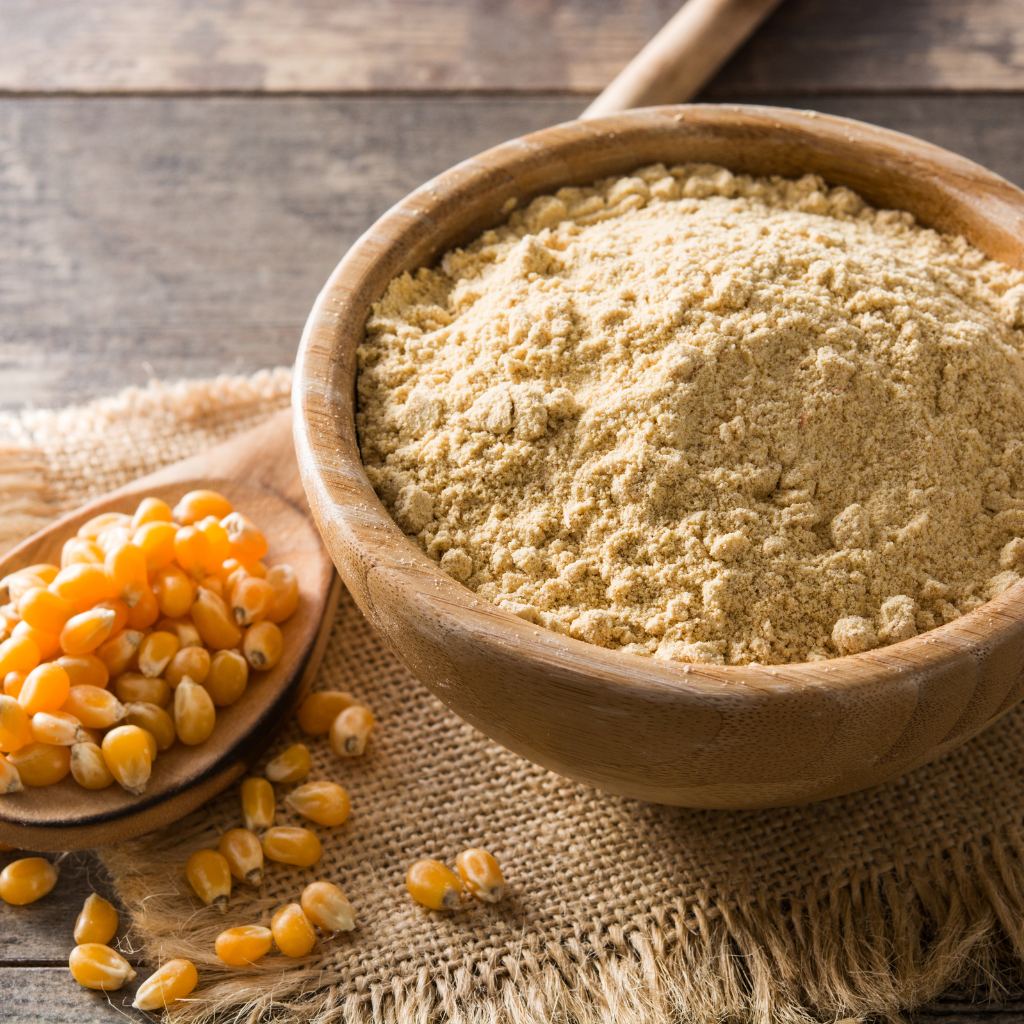
Understanding the Difference: Corn Powder vs Corn Flour
Share
In the realm of baking, beauty, and skincare, the distinction between corn powder and corn flour may seem subtle, yet it's crucial for achieving the desired results. While they both originate from corn, their uses and properties differ significantly. Let's delve into the nuances of corn flour vs corn powder, so you can make the right choice whether you're whipping up a culinary masterpiece or concocting a beauty regimen.
What is Corn Flour?
Corn flour is the result of grinding entire corn kernels into a fine powder. It's a staple in many cuisines worldwide and serves as a thickening agent in soups, sauces, and gravies. In baking, it's often used in combination with other flours to create a lighter texture in cakes and bread. Its fine texture and relatively bland taste make it a versatile ingredient in the kitchen.
Baking Applications
In the baking aisle, corn flour is prized for its binding qualities. It helps to hold baked goods together, providing structure without altering the flavor profile. This makes it an essential ingredient for gluten-free recipes, where it often replaces traditional wheat flour.
What is Corn Powder?
Corn powder, on the other hand, often refers to finely ground cornstarch, which is derived from the endosperm of the corn kernel. Unlike corn flour, cornstarch is primarily used as a thickening agent in culinary preparations. Its main role is to thicken sauces and soups without adding a grainy texture.
Beauty and Skincare Uses
Corn powder has found its way into the beauty industry due to its absorbent and soothing properties. It's commonly used in cosmetic products such as face powders, where it helps to absorb excess oil and give the skin a smooth appearance.
by Luis Morera (https://unsplash.com/@luismorerat)
Corn Powder vs Corn Flour in Hair Care
When it comes to hair care, corn powder can be used as a dry shampoo alternative. It absorbs excess oil from the scalp, leaving hair looking refreshed. Corn flour, however, is not typically used in hair care due to its coarser texture and potential to leave a residue.
Substituting Corn Powder for Corn Flour (and Vice Versa)
It's important to note that corn powder and corn flour are not directly interchangeable due to their differing properties. When a recipe calls for corn flour, substituting it with corn powder may result in a dish that is too thick or has an altered texture. Conversely, using corn flour in place of corn powder could lead to a less effective thickening agent and a potentially grainy final product.
In Baking
For baking purposes, substituting baking powder for corn flour is also not advisable. Baking powder is a leavening agent, which causes baked goods to rise. Corn flour lacks this leavening property and would not produce the desired airy texture in cakes and bread.
Conclusion
Understanding the difference between corn flour and corn powder is key for both culinary and cosmetic endeavors. Remember that corn flour is best for baking and as a thickening agent that contributes to the structure, while corn powder, or cornstarch, excels in thickening liquids and is a go-to for oil absorption in beauty products. Choose wisely to ensure your creations, whether on the plate or on your skin, turn out just as you intended.
Have you ever mistakenly used one in place of the other? Share your experiences in the comments below!

